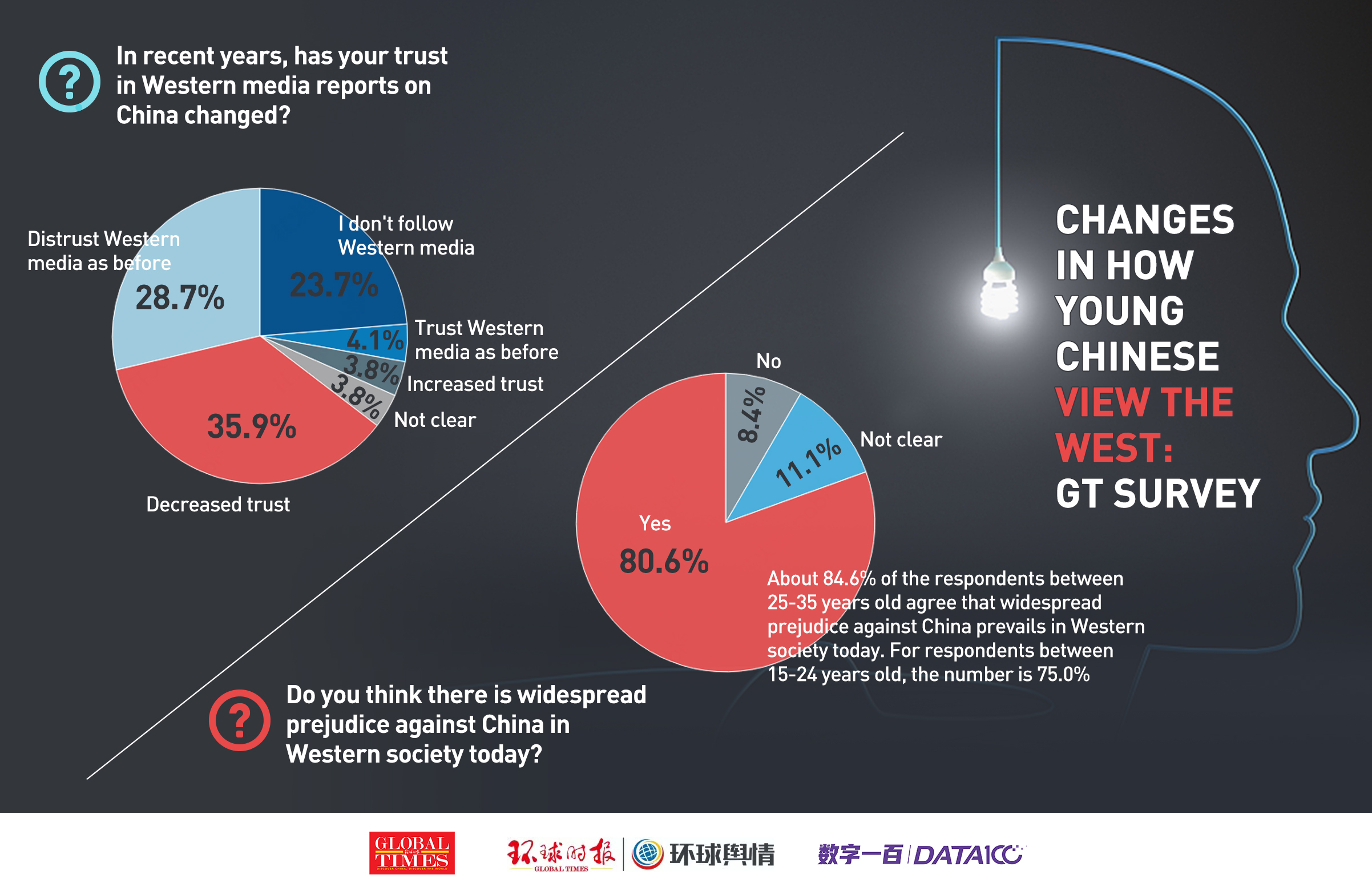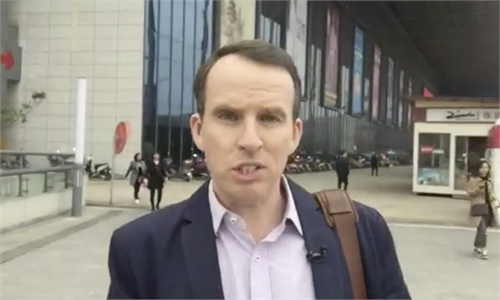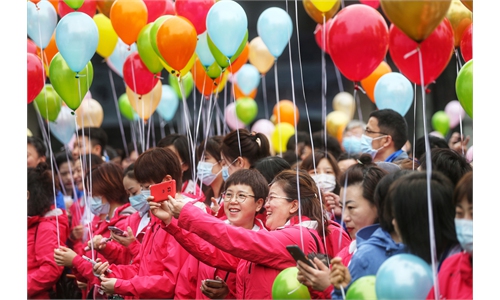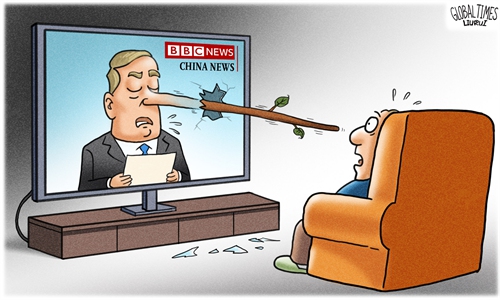Over one-third of respondents show declining trust in Western media, calling them 'politicized tools' for containing China

Graphic: GT
Over 80 percent of the respondents to the latest survey conducted by the Global Times believe that there is currently a widely shared bias in Western society toward China, and in recent years, over one-third of the respondents showed declined trust in Western media's coverage of China. This is especially true on Western-led accusations of the so-called genocide in China's Xinjiang, which over 76 percent see as a complete lie that serves only as an excuse for containing China.
The survey, entitled "Changing attitudes toward the West among young Chinese people," gathered from April 9 to 12 in total 1,281 responses covering 129 cities in the country. It showed that there has been a significant change in attitude among young people toward Western countries, as a growing number of respondents see them as equal while many used to look up to them.
Over one-third of the respondents said they have declining trust in Western media's coverage of China, and about 28 percent said they do not trust them as they did before, while about 23.7 percent of them said they don't pay any attention to the Western media. Further analysis of the changing attitude toward the West, from looking up to it to now seeing it as an equal, showed that over 55 percent of the respondents had declining trust in the Western media's coverage of China, according to the survey.
When asked about the constant accusations made by the US and other Western countries toward Northwest China's Xinjiang Uygur Autonomous Region on the so-called forced labor and other violations of human rights, about 77 percent of the respondents considered the accusations pure lies that were used as excuses by the West to contain China, and about 15.1 percent considered them basically true, which shows that China has certain deficiencies when handling Xinjiang affairs.
Among the respondents who had experience studying or living abroad, nearly 60 percent see those Xinjiang-related accusations as groundless excuses, and about 35 percent of them admitted that China has certain inadequacies when it comes to the Xinjiang-related affairs. However, for those who had no experience living or studying overseas, 81.2 percent see those accusations as excuses to curb China's growth, while 11.4 percent considered those claims basically true.
Declining public trust in the Western media has also been reflected in China's social media recently toward foreign media outlets such as the BBC. After BBC footage depicting the recovery of Wuhan, Central China's Hubei Province, from the coronavirus outbreak sparked uproar among Chinese netizens due to the addition of a grayish filter in its English version, BBC Beijing correspondent John Sudworth left the Chinese mainland and is now believed to be hiding in the island of Taiwan, after he filed a number of biased stories about China's Xinjiang policies and China's fight against the COVID-19.
Over the past few years, the BBC news channel has been showing much stronger bias toward China embedded with distorted facts, despite always claiming its neutrality and objectivity, and has become a tool for the British government to confront China, Victor Gao, chair professor of Soochow University and vice president of the Center for China and Globalization, told the Global Times on Monday.
"The China-UK relationship will go back to the normal track someday in the future, so BBC should not become so politicized and not turn itself into a blatant government tool and lose all journalistic standards," Gao said.




